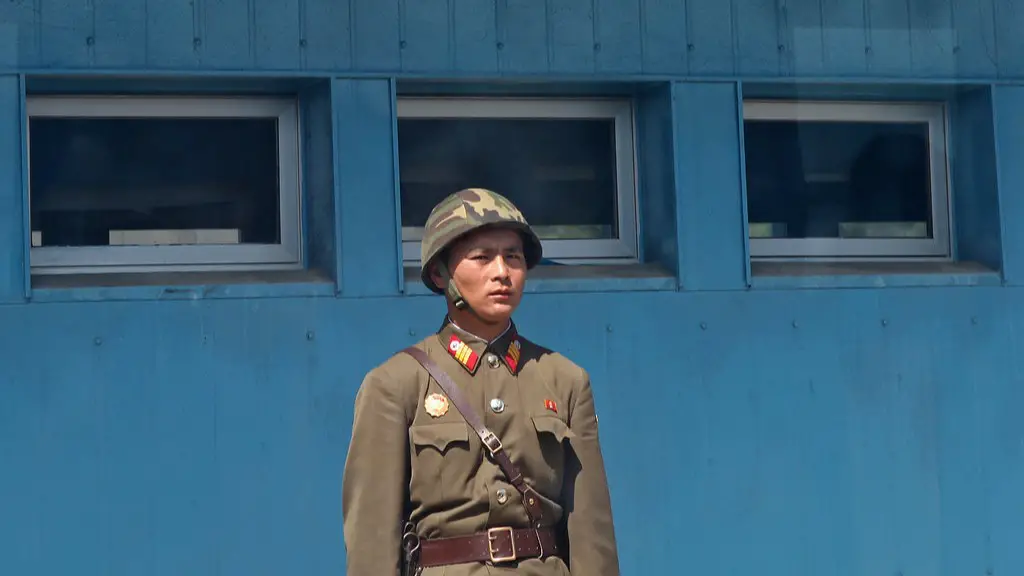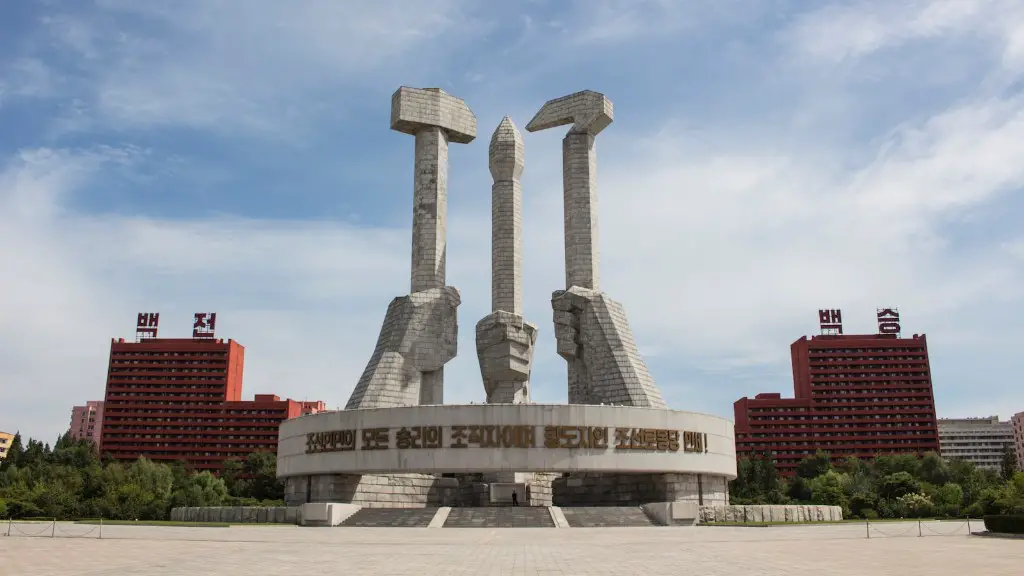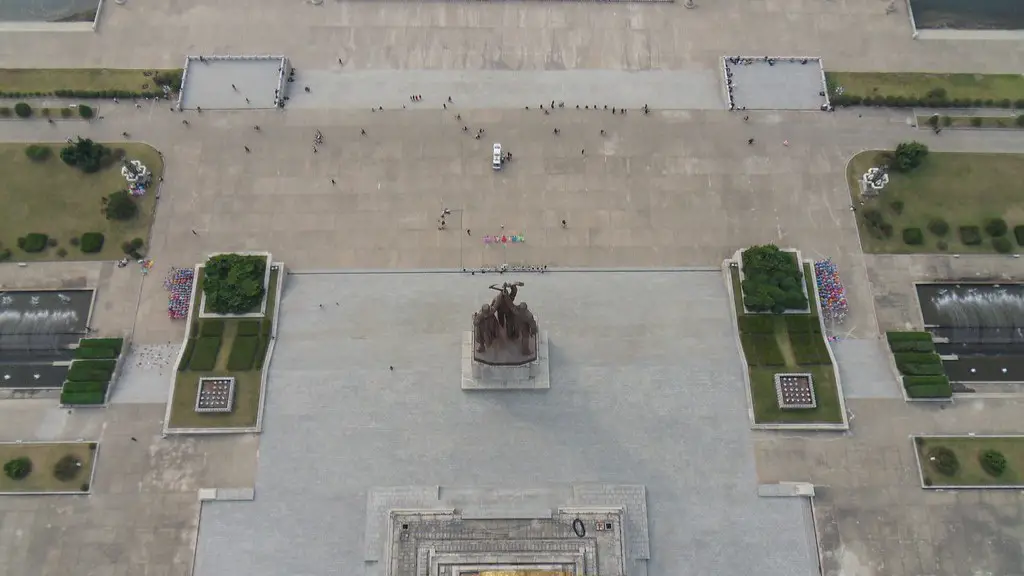Impact of the Nuclear Explosion
If North Korea were to nuke South Korea, the results would be catastrophic. The death toll could be extremely high, with estimates ranging from millions of casualties. Aside from death and injury, there would be wide-reaching damage to infrastructure, transportation networks, and communication channels. The nuclear fallout would be equally devastating and could cause wide-spread contamination with very harmful long-term consequences.
The greatest disruption would be economic. After the initial destruction of property and loss of life caused by the attack, the economic impact of the nuclear strike would linger for a number of years. Even if the warring nations could agree to an armistice, the long-term ramifications of the attack, such as damage to the environment and public health, would cause further economic hardship.
The neighboring countries of North and South Korea would also be severely impacted by disturbed geopolitical relationships and the destabilization of the region in general. The United Nations, as well as other countries involved in the conflict, would need to rapidly respond with aid and economic assistance for the affected countries in order to ensure a stable and secure region.
Risk of Nuclear Arms Races
The attack on South Korea would also heighten the risk of nuclear arms races in Asia. Japan, for example, has long maintained an official policy of not possessing, producing, or allowing nuclear weapons within the country. However, the risk of nuclear proliferation increases if a neighboring nation were to possess a nuclear weapon.
Moreover, a nuclear strike by North Korea would put other countries on edge, potentially triggering a new Cold War-style arms race in the region. This could have very serious international repercussions, potentially leading to more international military conflict.
The risk of nuclear war is a real and present danger, as North Korea is known to have a very advanced nuclear weapons program. Furthermore, they have made multiple threats of nuclear war in the past, demonstrating the potential for increased tension between North and South Korea to escalate significantly.
While the potential of a nuclear war is deeply concerning, there have been notable steps to denuclearise the Korean peninsula. Notably, an agreement between the United States and North Korea in 2018 to work towards denuclearization of the region.
Political Impacts
In addition to the economic and social impacts of a nuclear attack on South Korea, it would also have significant political ramifications. For example, South Korea’s relationship with the United States would be significantly strained, as the U.S. government has long been supportive of South Korea’s defense. It is likely that this political tension would continue to remain high and may even further worsen the relations between the two countries.
The threat of a nuclear strike also has implications for global politics more generally, as a number of countries have large military presences in the region. This could increase the likelihood of military conflict in the region and create an unpredictable geopolitical environment.
Furthermore, North Korea’s success in carrying out a nuclear attack on South Korea could create further political instability in Asia-Pacific, as other countries in the region may respond with their own threats of nuclear action. This could lead to further tensions between countries, heightening the risk of military conflict.
International Reactions
The international community would be swift to condemn such an attack. It is likely that many nations would introduce economic sanctions on North Korea; as well as possibly military action. China, North Korea’s closest ally, may be more lenient in its response, but would undoubtedly face pressure to distance itself from North Korea’s actions.
The United Nations would spring into action and deliver an emergency aid package specifically designed to help the victims of the attack, as well as an armistice agreement between the two nations to try and ease the tensions. It is possible that a resolution could be reached between the two countries, but the withdrawal of nuclear weapons from the Korean peninsula would be a key point of discussion.
In addition, the international community would need to address the issues of nuclear non-proliferation and the proliferation of weapons of mass destruction. The threat of nuclear conflict must be taken seriously and measures need to be taken in order to ensure that such technology is not misused.
Political and Diplomatic Solutions
Political and diplomatic solutions must be explored if a nuclear attack is to be prevented. This includes economic cooperation and trade between North and South Korea. It is possible that the North and South could reach an agreement to lessen tensions through foreign investment and job creation.
Dialogue between the two countries is essential in order to build trust and open channels of effective communication. The U.S. would need to play a crucial role in facilitating peace, as they have maintained a strong presence in the region.
Internationally, diplomatic incentives such as the Non-Proliferation Treaty must be actively encouraged, with all states being encouraged to sign it. Furthermore, the U.N. must engage in increased diplomatic efforts to prevent the further spread of nuclear weapons.
Therapeutic Impact
The psychological impacts of such an attack cannot be overstated. Not only could the survivors and immediate victims of the attack suffer from PTSD, but the region as a whole would by affected. People would become distrustful of their neighbors, while feelings of insecurity and intense fear may linger in the region for years to come.
In order to counter this psychological trauma, it is essential that mental health care is taken seriously. The international community should support nations as they attempt to rebuild after the nuclear attack, providing psychological support and resources for those affected.
Furthermore, it is essential that survivor support programs are developed, providing psychosocial support to help survivors and victims through the recovery process. This includes providing access to psychological resources, education, and counseling.
Media Response
The media would undoubtedly cover the attack, both from the perspective of journalistic reporting as well as opinion pieces. While journalists strive to remain impartial, it is likely that opinion pieces would take a stance against such a move by North Korea. It is important, however, that the media maintains accurate and comprehensive reporting on the situation, informing the public truthfully without speculation and bias.
The media could also work to highlight the potential of a peaceful outcome and the progress being made towards denuclearization of the Korean peninsula. This would be a vital step in reducing the tensions between the North and South, setting an example for other regions with nuclear threats.
Cultural Consequences
Finally, the cultural implications of a nuclear attack must be taken into consideration. Both North and South Korea have unique cultural identities which would be greatly impacted by the aftermath of such an attack. It is likely that the traditional culture of South Korea, in particular, would be deeply affected by the destruction of monuments, locations of cultural significance, and the displacement of its citizens.
In light of this, it is essential that governments of both countries attempt to preserve and restore the culture of the region. This could include art projects and public installations which pay homage to the region’s unique culture, as well as efforts to provide refugees with access to learning about traditional culture.
Moreover, education and outreach is vital in the prevention of similar attacks in the future. Both North and South Korea need to be proactive in promoting the importance of diplomacy and the peaceful resolution of disputes. By understanding the consequences of war, hopefully this kind of tragic situation can be avoided in the future.





